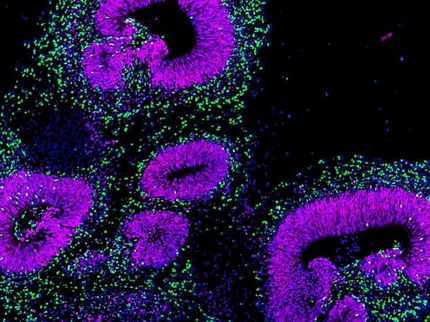Cholesterol necessary for brain development
A derivative of cholesterol is necessary for the formation of brain cells, according to a study from the Swedish medical university Karolinska Institutet. The results, which are published in the journal Cell Stem Cell, can help scientists to cultivate dopamine-producing cells outside the body.
The study was led by Professor Ernest Arenas and demonstrates that the formation of dopamine-producing neurons during brain development in mice is dependent on the activation of a specific receptor in the brain by an oxidised form of cholesterol called oxysterol. Dopamine-producing nerve cells play an important part in many brain functions and processes, from motor skills to reward systems and dependency. They are also the type of cell that dies in Parkinson’s disease.
The scientists have also shown that embryonic stem cells cultivated in the laboratory, form more dopamine-producing nerve cells if they are treated with oxidised cholesterol. The same treatment also reduced the tendency of the stem cells to show uncontrolled growth.
“Oxysterol contributes to a safer and better cultivation of dopamine-producing cells, which is a great advancement since it increases the possibility of developing new treatments for Parkinson’s disease,” says Professor Arenas.
It is hoped that one day it will be possible to replace dead cells in the brains of Parkinson’s patients with transplanted cultivated dopamine-producing cells. Such cells can also be used to test new Parkinson’s drugs.
Original publication: Paola Sacchetti, Kyle M. Sousa, Anita C. Hall, Isabel Liste, Knut R. Steffensen, Spyridon Theofilopoulos, Clare L. Parish, Carin Hazenberg, Lars Ährlund Richter, Outi Hovatta, Jan-Åke Gustafsson & Ernest Arenas; "Liver X Receptors and oxysterols promote ventral midbrain neurogenesis in vivo and in human embryonic stem cells"; Cell Stem Cell 2009.
Most read news
Topics
Organizations
Other news from the department science

Get the life science industry in your inbox
By submitting this form you agree that LUMITOS AG will send you the newsletter(s) selected above by email. Your data will not be passed on to third parties. Your data will be stored and processed in accordance with our data protection regulations. LUMITOS may contact you by email for the purpose of advertising or market and opinion surveys. You can revoke your consent at any time without giving reasons to LUMITOS AG, Ernst-Augustin-Str. 2, 12489 Berlin, Germany or by e-mail at revoke@lumitos.com with effect for the future. In addition, each email contains a link to unsubscribe from the corresponding newsletter.


















































